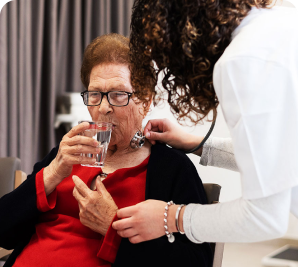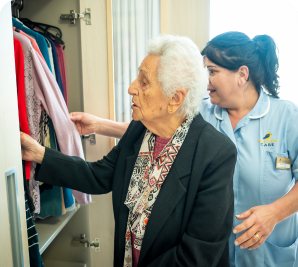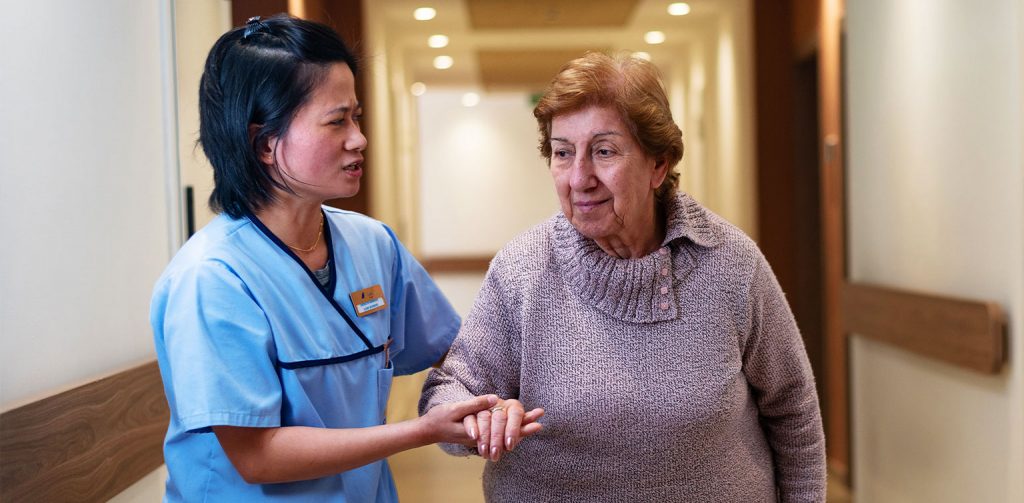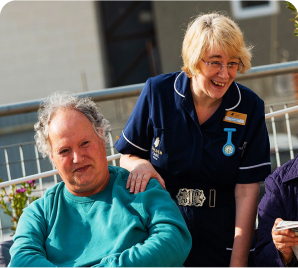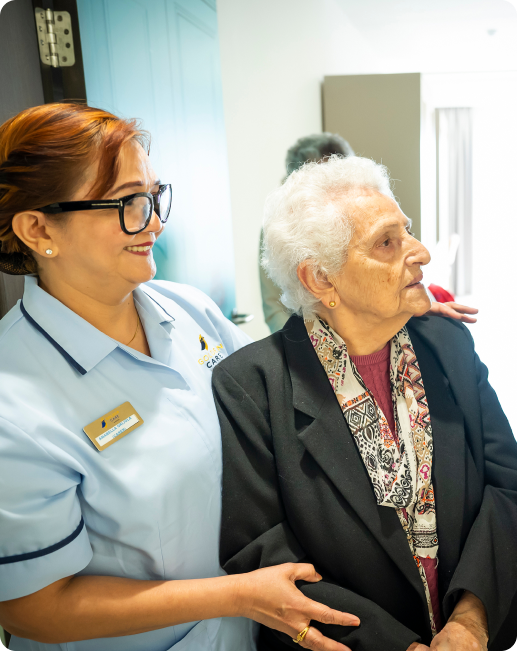
Person Centred, Dignified Care
Dementia affects people in different ways, depending on the type of dementia. The impact can be physical, emotional and psychological and can also profoundly change the practicalities of everyday life.
Dementia is a progressive condition that affects memory, thinking and behaviour. Caring for a person with dementia can be physically and mentally demanding, so it’s vital that you also look after yourself.
We recognise that the demand for dementia care services has increased over the years, so we strive to ensure everyone receives the right care and support to help them feel relaxed, safe, and content in their new home.
Our philosophy is to provide care that is truly person centred, dignified, and focused on the individual and their needs and wishes. Our staff are trained to recognise the level of help people need to enable them to provide skilled, sensitive, and discreet support when required. We also emphasise the importance of a strengths-based approach, encouraging people to maintain existing skills, abilities, hobbies and interests, and supporting them to be as independent as possible.
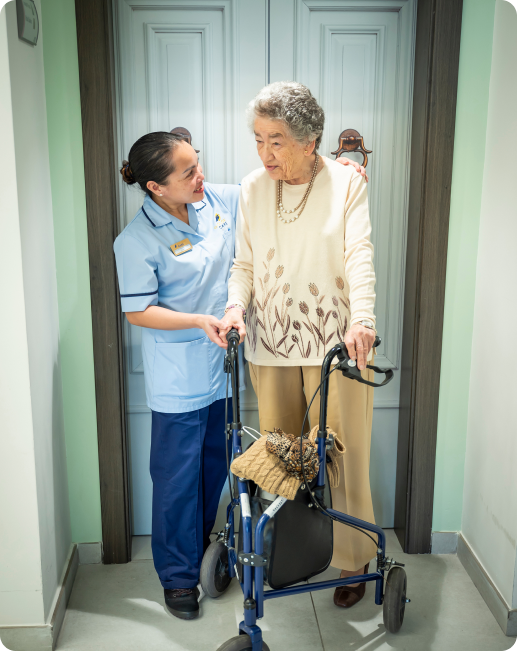
Making a difference through Training
Being cognisant of the fact that dementia care can present itself across various types of clients, we ensure that all our employees are dementia trained. Training is delivered face to face by accredited experts in the field.
Training includes an introduction to dementia (types, causes, symptoms that can accompany dementia). Healthcare professionals need to be able to feel confident in their knowledge and be able to provide information or signpost people with dementia or partners and families to further information and support. We strongly promote the uniqueness of individuals in our care, and the need for person centred approaches that maximise people’s physical and psychological well-being. Promoting a strongly inclusive culture is very important.
Emotional reactions and behaviour changes can be upsetting for people living with dementia and those around them. We support our multidisciplinary professionals to understand that behaviour is often the person’s only means of communicating a need, and that it is our job to try to identify and meet that need to minimise distress. We have commissioned external trainers to deliver specialist training in this area including supporting people with complex care needs around essential personal care delivery.
Lifestyle and Wellbeing
We encourage people to remain active and involved in the life of the home. Our Events and Wellbeing Coordinators arrange group and individual activities, based around people’s interests, likes and dislikes. We use Life Story books which contain a wealth of information to help us to plan and tailor care to people’s individual needs. We strongly suggest people are supported by family and friends to complete these as they provide prompts for conversation and allow us to weave what is important to people throughout their day into every-day interactions. This helps people feel connected to others and reinforces their sense of self which is very important.
We are also very aware of the beneficial effects of music for people living with dementia and highly recommend that people moving into our homes are supported to bring with them a personalised playlist.
Enabling Environments
We aim to provide homely and welcoming environments furnished to a high standard which help people to feel relaxed and safe. We consider best practice in relation to dementia design when refurbishing and designing our memory communities, including rest areas and points of interest to encourage moving around the home and interaction with the surroundings.
We tastefully use colour and contrast and technology to support people with visual and perceptual problems in order to aid orientation and way finding. We have provided the use of Memory Boxes, giving each resident the opportunity to put items which can help them reflect on the past and recall people and events. It can be a newspaper clipping, or a family photo but such boxes hold items that can bring our dearest ones back to a time or even a moment that they hold so dear.
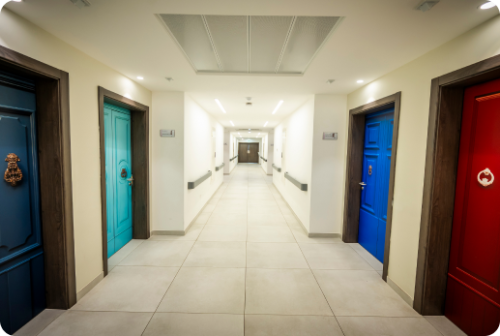

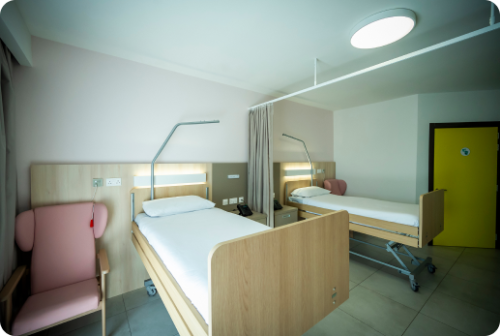
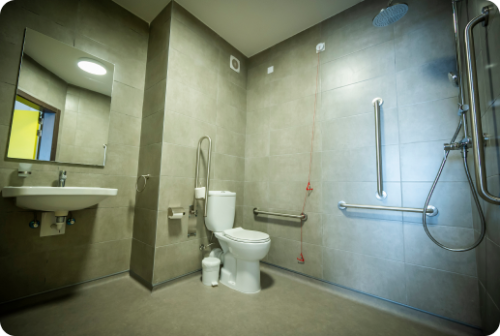
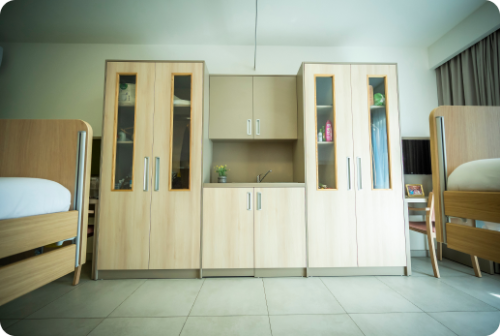


Dedicated Dementia Garden
Access to outdoors and being close to nature is very beneficial and we encourage people to go outdoors and continue their gardening hobby if this is what they would like to do.
For this reason, a dedicated dementia garden has been designed to provide a place for socialising and interaction. It is also a space which promotes movement and exercise and aids in the management of symptoms such as anxiety and agitation.
There are lasting benefits for gardening for someone living with dementia, including improved memory, attention, social interaction, reduced stress and increased feelings of calm and relaxation.


